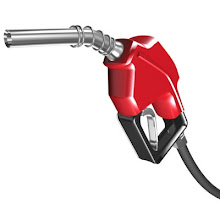
Environmentalism...the story of the recent past.
"Carbon with two oxygen atoms is a quite different animal from carbon with a single oxygen atom attached."
Carbon monoxide is where the environmental movement really began.
Donora, Washington County, Pa., 1948: A cloud of carbon monoxide, sulfur dioxide, and other pollutants from the local zinc smelter blankets the town, killing 20 people.
Los Angeles, in the 1960s: Carbon monoxide and a brew of other pollutants turn the air brown, making "smog" a part of everyone's vocabulary. But CO is a mistake; it's the product of incomplete combustion. You can do something about it, namely, stick a catalytic converter on the tailpipe of your car or a scrubber on the stack of your smelter.
That's been done in many places, and the results are clear. In 2002, for instance, Southern California met federal requirements for CO levels for the first time since the government set them in 1963. Carbon monoxide was a pollutant; you could fix it, just as we could fix the sulfur, nitrogen, and mercury still pouring out of the smokestacks of many of our power plants. Just as the diesel engine industry will now have to make some technical changes.
Carbon dioxide, on the other hand, isn't a pollutant in any normal sense. Until very recently, scientists defined a clean engine as one that produced only CO2 and water vapor. It's inevitable that if you burn fossil fuel you will produce carbon dioxide, which we now understand as the driving force behind global warming. And so the best hope for preventing climate change is to burn less fossil fuel. Which is a very different task than fixing an engine, and helps explain why, so far, we've gotten nowhere.
Adding catalytic converters to fight smog in Los Angeles was a battle, of course. The auto industry, as with seatbelts and airbags and every non-cupholder innovation, resisted reflexively. But in the end, politicians ordered new standards: The cost of converters was small in comparison with the total price of a car, and better yet, it was hidden. This was a piece of equipment, not a tax or a mandate. No one really noticed. And it worked. When it came to pollution control, environmentalism was up to the task.
But environmentalism, by itself, isn't up to the task of stopping global warming. Going after fossil fuels means going after the base of our economy, and hence of our daily habits. That is too central a target for a movement whose successes have involved fixing things around the edges. For instance, the obvious first step to reduce carbon emissions would be to increase the price of fossil fuels. Everyone knows that. But political leaders haven't done it because there are strong pressures from vested interests not to, and no pressure at all from the citizenry to do so. The vested interests won't go away, and voters aren't clamoring for higher gas prices now in exchange for a more livable planet down the road. So the best our leaders (even ones like Bill Clinton, who acknowledged the problem thanks to Al Gore) have been willing to do, is talk about magic technologies a few decades away, like hydrogen cars, that might somehow allow us to avoid ever making difficult choices.
So we have a split between a robust environmental movement taking on the relatively simple problems of old-fashioned pollution and a weak one getting nowhere on preventing the collapse of the planet's stable climate. That will likely continue until something breaks the logjam.
It may be scarcity that does the trick. The currently increasing cost of oil helps (though it does nothing to lessen the temptation of an endless surplus of carbon-laden coal).
Maybe fear will do it. One reason Europe takes climate change so seriously is that 35,000 French and Belgians died in a two-week heat wave the summer before last.
Or it may be some wild card: some new metaphor, some new leader. Or, more likely, some new vision.
Or maybe just the crunch on the economy as fuel prices start affecting everyone's spendable incomes...the trickle down effect of the increased cost of everything being produced, manufactured and shipped, will be what breaks this logjam.
We must do more than remedy existing problems; changing our behavior now will prevent new ones.
 global warming
global warming




No comments:
Post a Comment